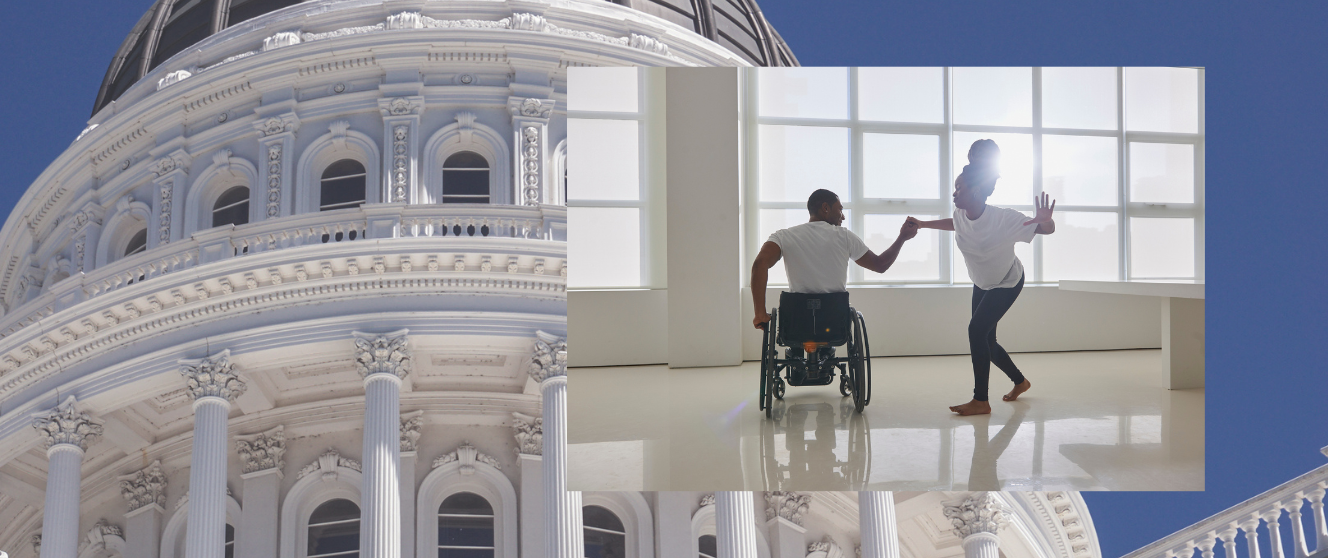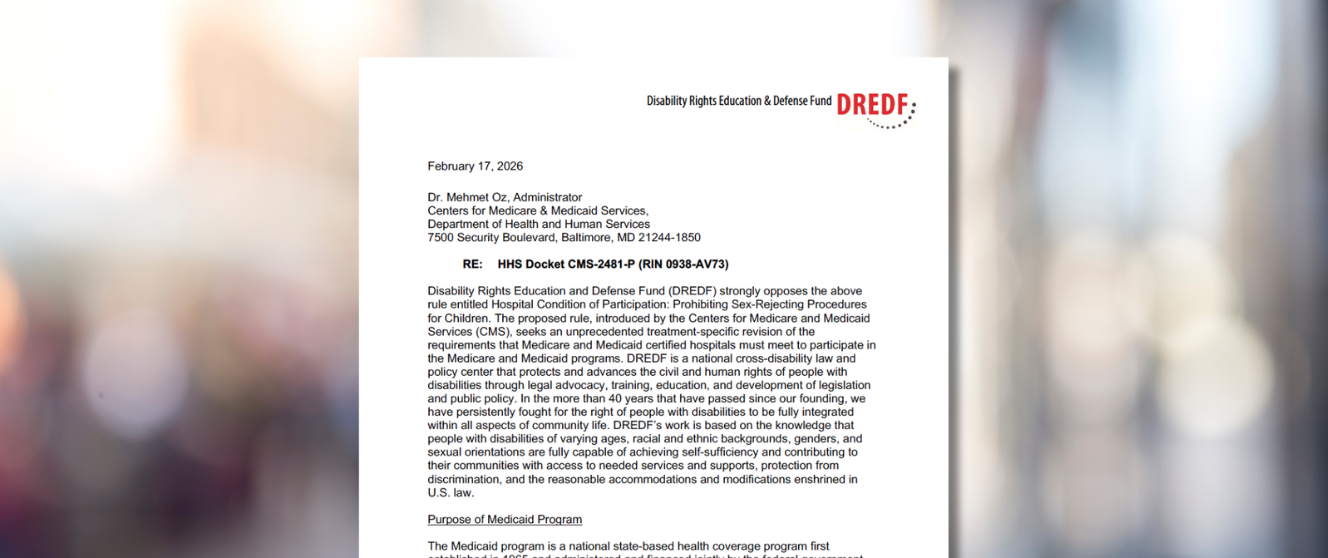
For Immediate Release:
August 20, 2025
BERKELEY, CA — Last week, the Disability Rights Education and Defense Fund (DREDF) was publicly criticized for work it is doing in coalition with a number of disability rights, civil rights, and criminal justice reform organizations related to a pending California bill introduced by Senator Aisha Wahab, Senate Bill 258. We share this statement on the bill and our work. We have also created a Frequently Asked Questions resource to help provide some context around the bill.
Under California law, rape includes sexual intercourse with a person considered legally incapable of giving legal consent because of a mental, developmental, or physical disability. Under current law, this type of rape does not apply to sexual intercourse within a marriage. This “spousal exception” dates back to the late 1800s, when lawmakers held the misogynist belief that rape could not happen within a marriage.
For unmarried disabled people, this category of crime can undermine their sexual autonomy, as it assumes that unmarried people with disabilities lack the capacity to consent to sex simply because they are disabled. Such assumptions reinforce harmful stereotypes that disabled people cannot and do not want to make decisions about sexual intimacy. They also undermine the ability of disabled people to make decisions about intimacy, resulting in more harm than protection.
Because of the spousal exception to this category of rape, married people with disabilities do not have to worry about consensual sexual relationships within their marriage being mischaracterized as rape. Many disabled people are married, and this exception has protected them from having their consensual sexual relationships being mischaracterized as rape. At the same time, many disabled people are not married because of their state and federal benefits or for personal reasons.
As originally introduced, SB 258 removed the spousal exception from California’s rape law without providing guidance on capacity to consent to sexual conduct. This could have opened the door to people being arrested for consensual sexual activity between married adults when one or both spouses has a disability. The disability community raised concerns that such an outcome would be wrong and would directly harm rights to sexual autonomy.
DREDF opposed SB 258 unless amended to protect the sexual autonomy of all people with disabilities whether married or unmarried. DREDF and its partners worked for months to educate legislators about the ableism in California’s current and proposed laws. DREDF and its partners successfully negotiated amendments to SB 258 that help ensure that no one, married or unmarried, will be presumed unable to consent to sex because of disability. Together, we created amendments to SB 258 that improve current law. As a result, DREDF has now changed its position on SB 258 to neutral.
The amended version of SB 258 states that no one should be presumed unable to consent to sex because of their disability. It sets out a definition of incapacity that tracks existing law on consent. And it requires that when an individual’s capacity has been put into question, courts consider the person with their supports and accommodations in place, a core principle of California’s supported decision-making law.
Such guardrails are critical. They protect the autonomy of both married and unmarried couples, and improve existing law on how prosecutors, judges, and juries assess capacity.
DREDF is a disability-led organization with an unwavering commitment to autonomy, self-determination, and equal rights. It is our core belief that disabled people have the right to make intimate choices—including whether and with whom to have sex—free from government interference. We proposed amendments to SB 258 consistent with this core belief and were informed by our long history of advocacy in the area of sexual autonomy, as well as the voices of disabled advocates.
We understand that disability rights organizations that share similar visions may disagree on strategy. Taking time to educate legislators and negotiate for meaningful improvements to flawed legislative proposals is not “putting politicians over people.” It is an essential part of the legislative process and ensures we prevent harmful laws from passing and improve the law going forward. We believe the amendments to SB 258 improve the law moving forward.
Go to SB 258 Frequently Asked Questions →
# # #
Media Contact
Tina Pinedo
DREDF Communications Director
(510) 225-7726
media@dredf.org
About Disability Rights Education and Defense Fund
Disability Rights Education and Defense Fund (DREDF), based in Berkeley, California, is a national nonprofit law and policy center dedicated to advancing and protecting the civil and human rights of people with disabilities. Founded in 1979 by people with disabilities and parents of children with disabilities, DREDF remains board- and staff-led by members of the communities for whom we advocate. DREDF pursues its mission through education, advocacy, and law reform efforts, and is committed to increasing accessible and equally effective healthcare for people with disabilities. DREDF supports legal protections for all diversity and minority communities, including the intersectional interests of people within those communities who also have disabilities.


